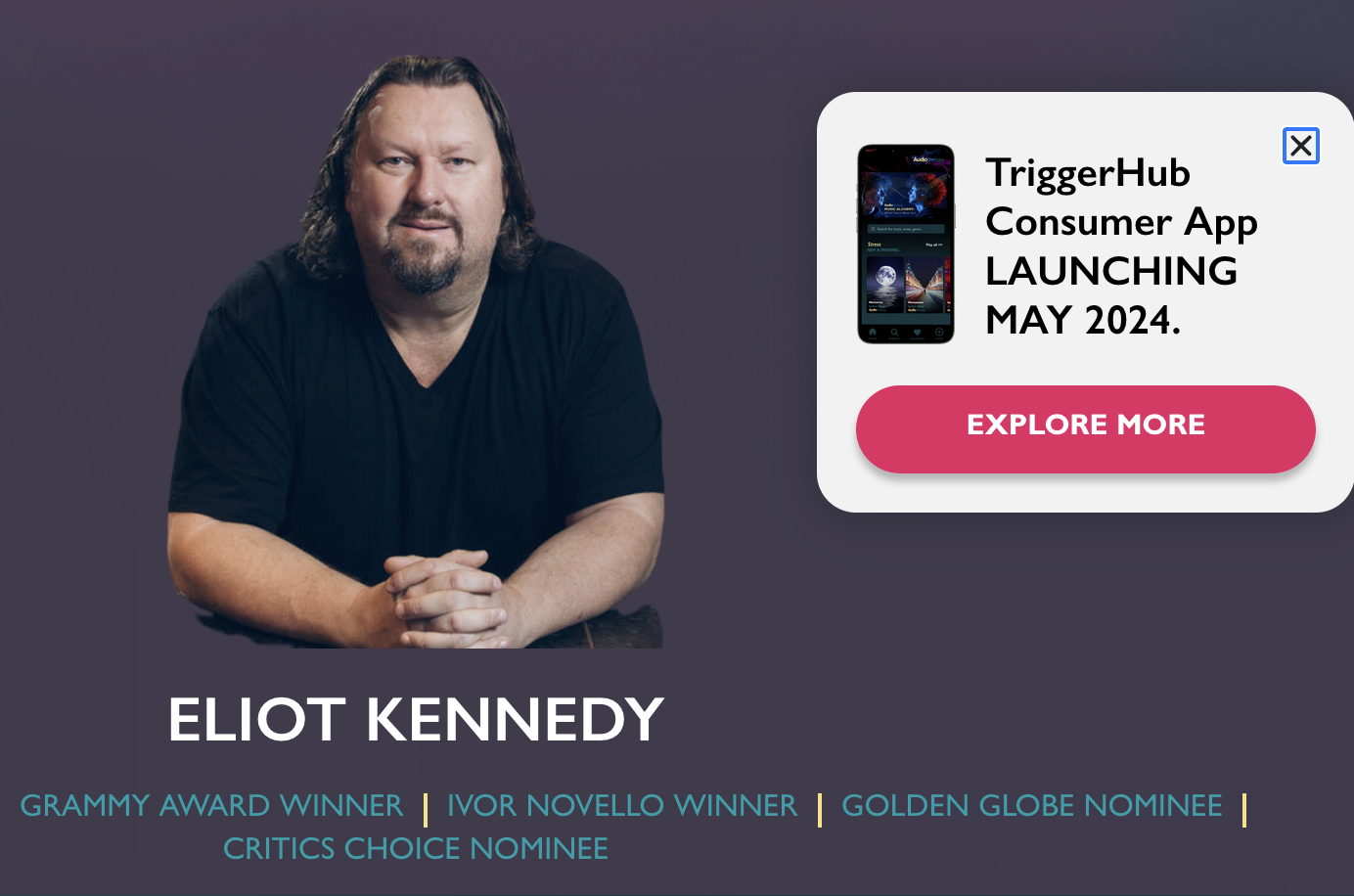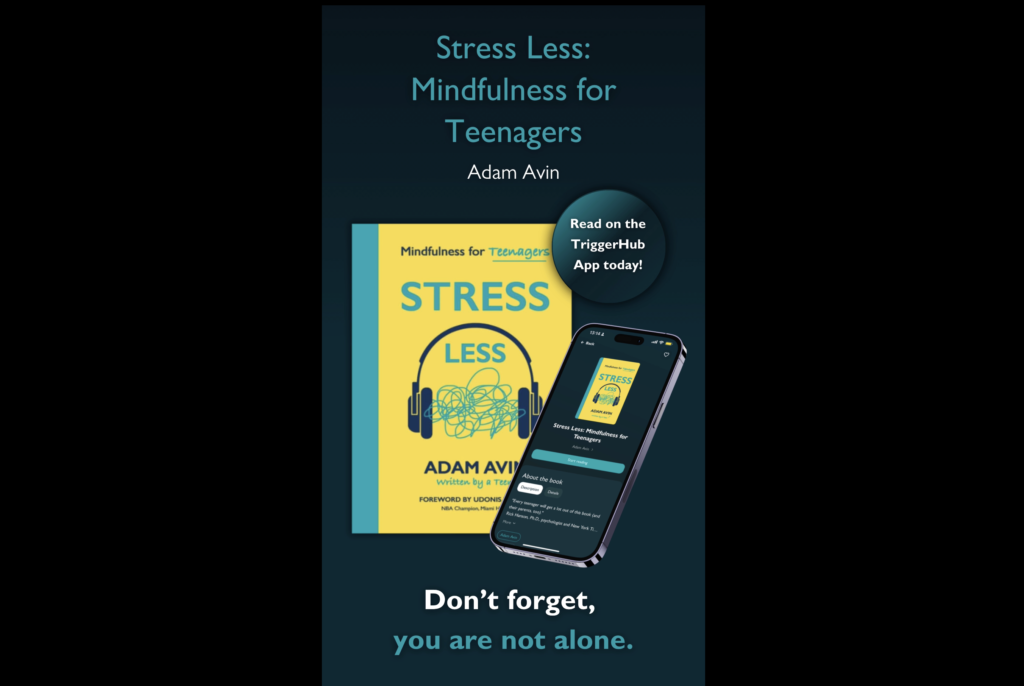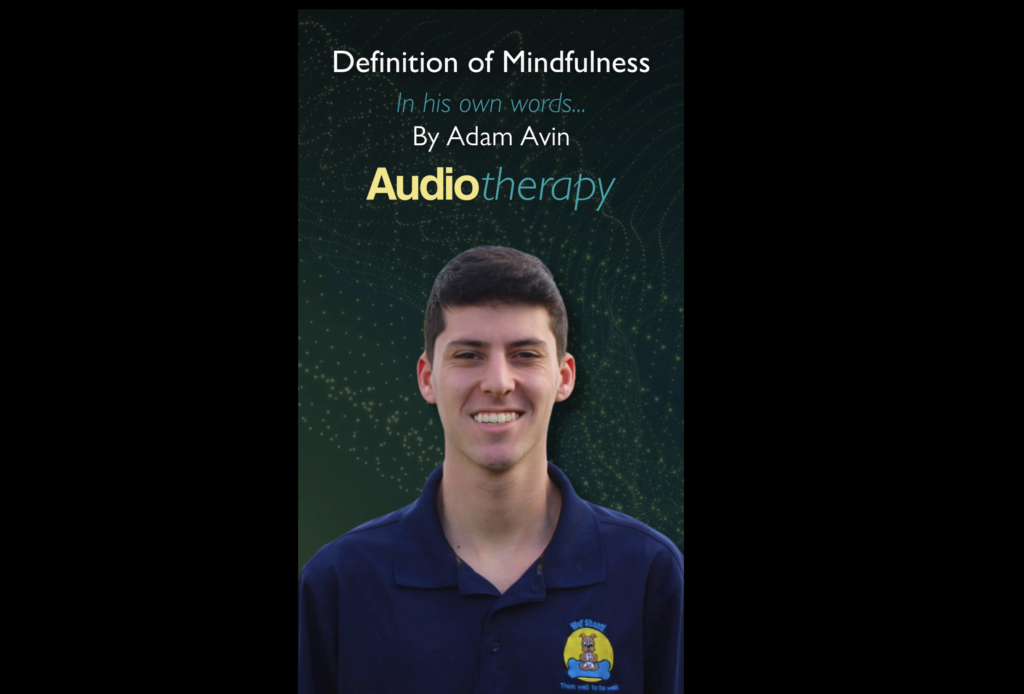As the title suggests, my mindfulness book is now mindful music through audiotherapy! One thing you have to know about me is that I love music. When people ask me how I prefer to practice mindfulness, you will often hear me say that you don’t have to sit with your eyes closed and legs crossed, and sometimes all you have to do is listen to your favorite song and focus on one aspect of it, like the guitar or piano or drums. This helps with relaxing, focusing on the present moment, and self-regulation.
My dad and I have a love for music in common. When I was younger, he shared his favorite bands and albums with me, and I became a big fan, so much so, that my dad and I still travel together to see concerts. One time, we went across the pond to London, just to see one of my favorite bands, Take That, with the awesome Gary Barlow.
I tell you that story to tell you another one: This book that I wrote, Stress Less, has been a surprising fountain of opportunities and I never realized what type of things could come from it. [I am very grateful for the opportunities that came from this book.] When I got a call from the publisher asking me if I wanted to work with Eliot Kennedy, a music producer who worked with….Take That, I really didn’t have to think very long or hard before saying yes and jumping at the chance. At the time, I didn’t even know what Audiotherapy was, and had to learn about this new concept and its applications.
Eliot believes, and so do I, that music can help heal us, and has a direct link to our memories and emotions. Audiotherapy is tailored to different mental health conditions, so for example, music for anxiety might have a different tempo or content than music for someone with depression. Scientifically, music helps release dopamine and endorphins, which helps us feel better, and control cortisol production, which produces the stress we feel. As Eliot calls it, “Audiotherapy is the soundtrack to the lived experience.” In the case of my book, it’s listening to me read portions of the book while meditative music plays in the background and relaxing images flow on screen.
Albert Einstein once said, “everything in our Universe is vibration.” At the heart of solfeggio frequencies, a set of 9 electromagnetic tones that are reputed to have the power to heal and raise consciousness, is the belief that the vibrational signature of certain sounds, ranging from 174 Hz to 963 Hz, can positively impact our mental, physical and spiritual health.
As part of our #mindfulmusic challenge, try listening to this or your favorite song once per day and focus on only one aspect of it, such as the piano, lyrics, or guitar. This will help you to be in the present moment. If thoughts enter, that’s ok, simply acknowledge, release, and begin again.
Give audiotherapy a try and let us know what you think!
Mindfulness https://youtu.be/vvAMyIoJvoA
Affirmations https://youtu.be/KiL77lFGJzo
Back to Neutral https://youtu.be/Znux9E9W61o
The TriggerHub App is currently offered for employees in the workplace or students at college/university.
To learn more about my book Stress Less: Mindfulness for Teens: https://wufshanti.com/stress-less-mindfulness-teens-book/
To read my book alongside Audiotherapy as a way to delve deeper into my story: https://linktr.ee/wufshanti
Check out more about audiotherapy here: https://triggerhub.com/audiotherapy
*They offer a special collection of curated music which focuses on mental health and is built to relax, inspire, motivate, energize, and find balance.
Thank you to TriggerHub for inviting me to participate in this new offering, and to Eliot Kennedy for including me in the process AND for getting Gary Barlow to say Happy Birthday to me! Working with you was a highlight and I look forward to our next collaboration.



